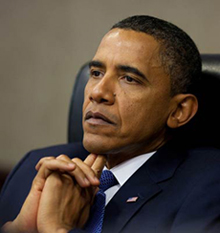Rare earth materials 'hoarded' by China, WTO case goes ahead

The United States plans to argue a case in front of the WTO (World Trade Organization) that China, producer of the majority of rare earth minerals, is 'hoarding' its resources to the detriment of worldwide competition.
The crux of the matter is that Japan and the European Union believe China's exportation limits on rare earth materials are 'unfair'. President Obama announced Tuesday that the U.S. will be joining the case.
The minerals are essential components for manufacturers of many modern devices, including smartphones, wind turbines and missiles.
Hybrid technology also often relies on these materials, and the production of products including hybrid cars may also face limitations in the future without access to these resources. Over 95 percent of rare earth materials are mined in China.
Current export limitations mean that the majority of these materials never cross China's borders, and other nations are unable to purchase them. The U.S. government believes that the current export rulings show China is 'hoarding' these materials for its own future use.
Furthermore, the case stipulates that China is breaking international trade law, and the situation is causing otherwise unnecessary price increases in the global marketplace. In the future, dwindling resources could result in China dominating the technology market, and consequentially restrict global competition.
The Minister of Industry and Information Technology in China, Miao Wei, responded by saying:
"We would feel sorry for their decision to complain to the WTO. In the meantime, we are actively preparing to defend ourselves and will explain the case if they bring the complaint against us."
The lack of access to rare earth material from China may frustrate manufacturers across the globe, however, China states that mining restrictions are in place to control environmental damage and protect dwindling resources.
Recently, the country has suspended issuing new licenses for rare earth material prospecting and mining, imposed production caps, and tightened up export quotas. Miao also said that unless these measures were kept in place, some materials would be exhausted within 20 years due to excessive mining and exportation.
Obama said Tuesday that he did not want to target China, however, "when it is necessary, I will take action if our workers and our businesses are being subjected to unfair practices".
The U.S. has won previous battles with Chinese manufacturers concerning limitations imposed on exporting manufactured materials, and if China continues to restrict rare earth material mining, it may have detrimental consequences for innovative technological development in the future.
However, if China is not breaking international trade law and is focused on sustainability and environmental protection, then the case may result in businesses having to re-think their use of dwindling natural resources.
Image credit: CNET
Related: